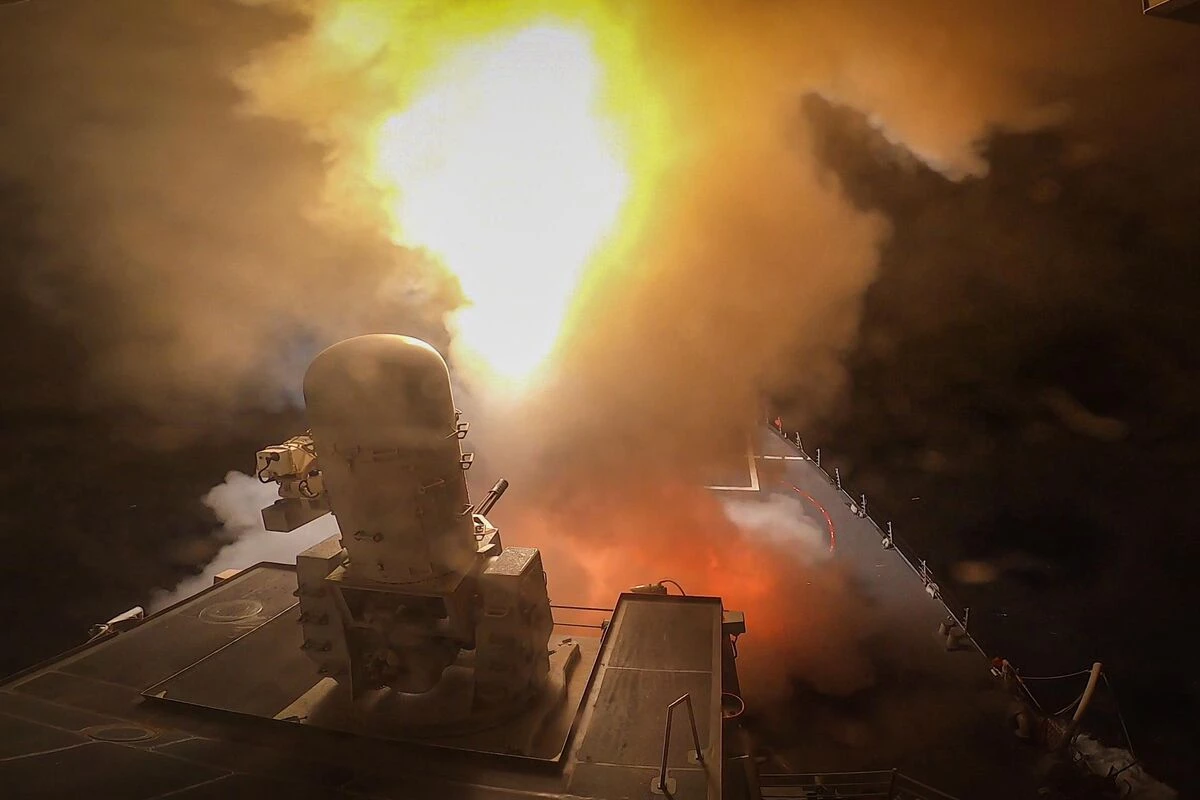The United States and Britain launched a second round of joint military strikes on Yemen's Huthis on Tuesday over their attacks on Red Sea shipping, as the Iran-backed rebels vowed to hit back.
The latest raids, heard by residents of the rebel-held capital Sanaa around midnight (2100 GMT), hit eight Huthi targets, a joint US-UK statement said, while the Huthis listed 18 strikes across their territory.
US and British forces carried out a first wave of strikes against the rebel group earlier this month, and the United States launched further air raids against missiles that Washington said posed imminent threats to both civilian and military vessels.
But the Huthis have continued their attacks on shipping -- just one part of a growing crisis in the Middle East linked to the Israel-Hamas war, which has raised fears of a broader war directly involving Iran.
The latest US-UK strikes were against "eight Huthi targets in Yemen in response to the Huthis' continued attacks against international and commercial shipping as well as naval vessels transiting the Red Sea", they said in a joint statement with other countries that supported the military action.
"These precision strikes are intended to disrupt and degrade the capabilities that the Huthis use to threaten global trade and the lives of innocent mariners," the statement said.
The US Central Command said in a separate statement that the targets of the strikes "included missile systems and launchers, air defence systems, radars and deeply buried weapons storage facilities".
On Tuesday, British Prime Minister Rishi Sunak urged an end to the attacks on shipping and told parliament the UK was "not seeking a confrontation," but that the country would "not hesitate" to respond to further incidents.
"We cannot stand by and allow these attacks to go unchallenged," he said.
Earlier, British Foreign Secretary David Cameron said the Huthis had carried out more than 12 attacks on shipping since the first wave of joint strikes on January 11.
- Attacks won't go 'unpunished' -
The Huthis remained defiant, with military spokesman Yahya Saree promising a response.
"These attacks will not go unanswered and unpunished," he wrote on X, formerly Twitter, listing 18 strikes in Sanaa, Hodeida, Taez and Al-Bayda provinces.
Iranian Foreign Minister Hossein Amir-Abdollahian said he told Cameron during the World Economic Forum in Davos last week that the attacks were a "strategic mistake".
"We sent a serious message and warning to the Americans," he said during a trip to New York, according to Iran's official IRNA news agency.
"The action that the United States and the United Kingdom carried out jointly... is a threat to peace and security in the region. It is the intensification of the scope of the war."
A senior US military official said the strikes were carried out using a combination of precision-guided munitions from US and British aircraft, and Tomahawk cruise missiles.
There were no concerns about civilian casualties at the sites that were hit, while Huthi losses were unknown, the official told journalists.
"The targeting was very specific and... very deliberate to go after the capability that they are using to attack maritime vessels in the Red Sea, Bab al-Mandab and Gulf of Aden," the official added.
Saree, the Huthis' military spokesman, did not mention any casualties.
- Two months of attacks -
The latest strikes came after the US military on Sunday declared dead two Navy SEALs who went missing during a January 11 operation to seize alleged Iranian weapons bound for Yemen's Huthis.
On Monday, hours before the joint operation, the Huthis said they fired on a US military cargo ship off the coast of Yemen. The claim was denied by a US defence official.
The Yemeni rebels began striking Red Sea shipping in November, saying they were hitting Israeli-linked vessels in support of Palestinians in Gaza, which has been ravaged by the Hamas-Israel war.
The Huthis have since declared US and British interests to be legitimate targets as well.
In addition to military action, Washington is seeking to put diplomatic and financial pressure on the Huthis, redesignating them as a "terrorist" organisation last week after dropping that label soon after President Joe Biden took office.
The rebels reiterated on Monday that they will "respond to any attack" on Yemen and continue to "prevent Israeli ships" from passing through the Gulf of Aden and the Red Sea until the end of the war in Gaza.
The latest round of the Israel-Hamas conflict began after an unprecedented October attack by the Palestinian militant group that resulted in the deaths of about 1,140 people in Israel, mostly civilians, according to an AFP tally based on Israeli official figures.
Israel responded with a relentless air and ground offensive that has killed at least 25,295 people, around 70 percent of them women, children and adolescents, according to the health ministry in Hamas-run Gaza.
Those deaths have sparked widespread anger across the region and stoked violence involving Iran-backed groups in Lebanon, Iraq and Syria as well as Yemen.


